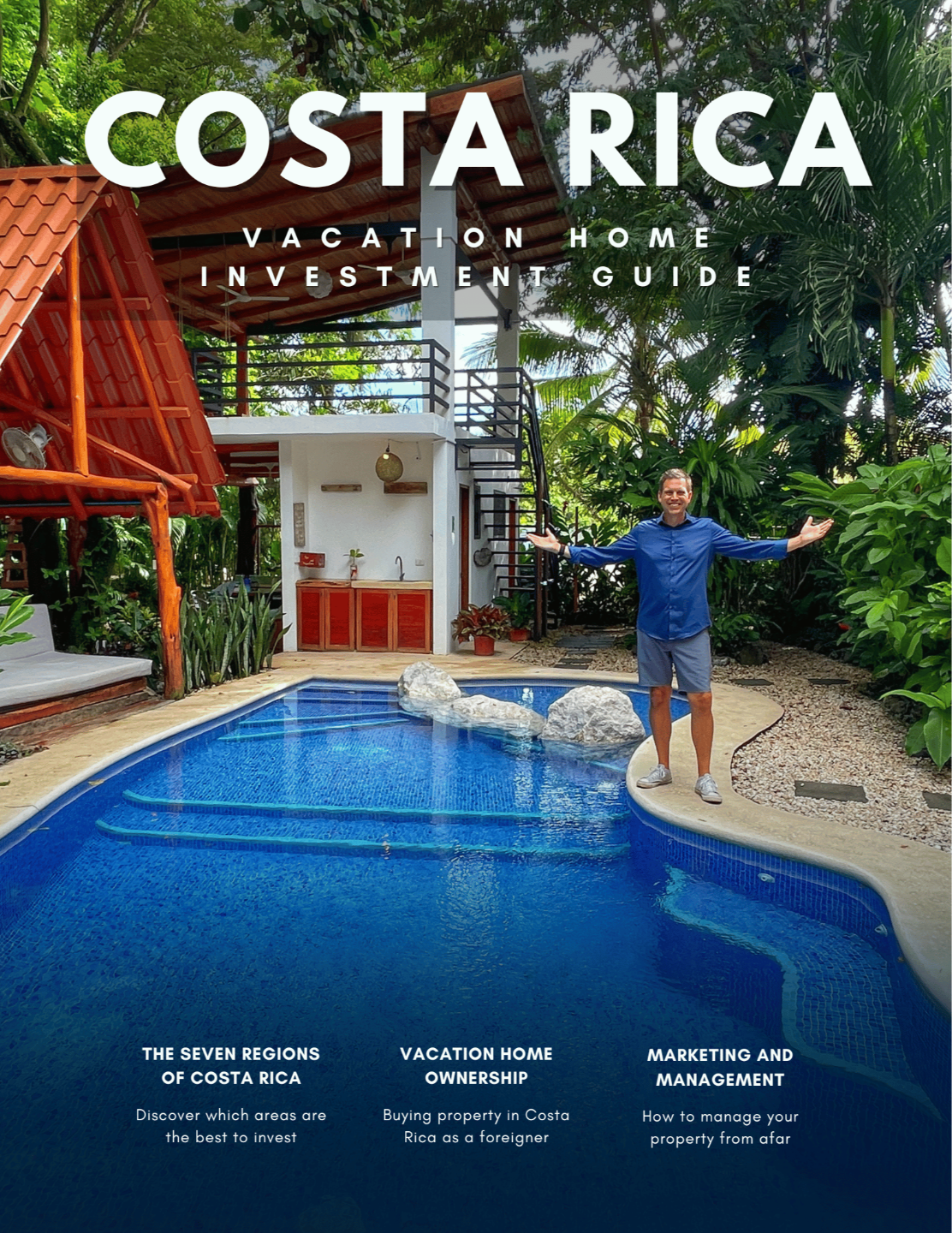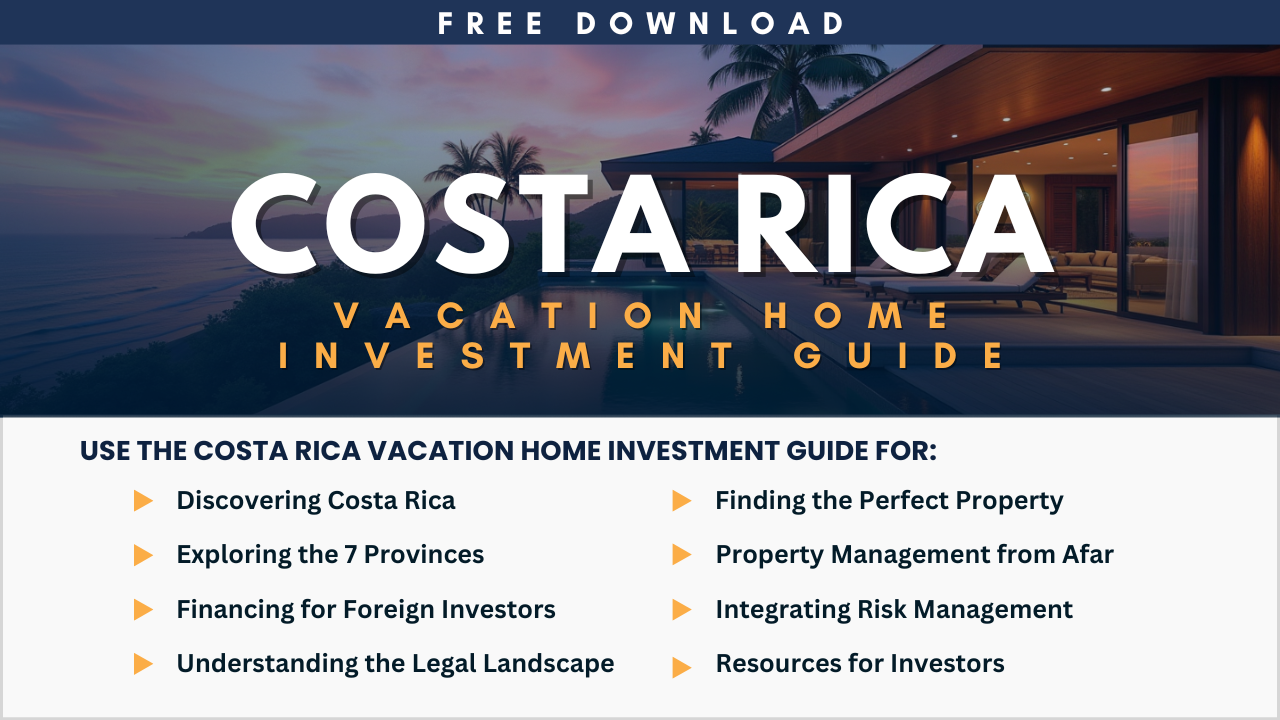
Why You Should Price Based on Your Property’s Value, Not Just Comparable Listings
Pricing your vacation rental correctly is critical to maximizing revenue, attracting the right guests, and ensuring long-term profitability. Many investors rely on pricing comparable listings in the area, but this approach can overlook your property’s unique value. While similar properties provide a useful benchmark, pricing based solely on them can lead to missed opportunities—whether through underpricing or overpricing your property.
In this blog post, we’ll explore how to price your vacation rental based on its true value, not just comparable listings. We’ll break down the factors that contribute to your property’s unique value and how to apply this information for optimal pricing.
What Does "Property Value" Mean in Vacation Rentals?
Property value in the vacation rental market is not just about location or price—it includes a variety of factors that contribute to a property’s overall appeal. Here’s what makes up your property’s value:
- Location: Proximity to major attractions, beaches, restaurants, or cultural sites. A property near popular tourist destinations or hidden gems can justify a higher price.
- Size and Layout: Larger properties or those with unique layouts, such as spacious family homes, penthouses, or multiple bedrooms, typically justify higher pricing. A well-designed property that offers a comfortable flow and abundant space for guests can set it apart from smaller or cramped rentals.
- Amenities: Special amenities such as a hot tub, private pool, sauna, or luxury appliances increase the perceived value of your property. Offering something that competitors lack can create a premium experience, which guests are willing to pay extra for.
- Condition and Curb Appeal: Well-maintained or recently renovated properties generally command a premium price. Properties that are clean, updated, and visually appealing tend to stand out in the market, attracting guests who are willing to invest in a high-quality experience.
- Guest Experience: Properties that offer seamless booking, easy check-ins, and exceptional cleanliness often justify a higher price. Guests appreciate well-thought-out experiences, from the moment they book to the moment they check out.
Understanding these elements helps you price based on the unique features and strengths of your property, ensuring you capture its full value. By focusing on what makes your property stand out, you ensure that the price you set accurately reflects the quality of the guest experience.
Why Comparing to Other Listings Can Be Misleading
While competitor research is helpful, relying solely on comparable listings can lead to inaccurate pricing for several reasons:
- Unique Qualities Are Overlooked: Your property may offer unique advantages that comparable listings don’t have, such as a superior location, luxury amenities, or an exceptional view. These features can enhance your property’s value beyond what a simple price comparison might suggest.
- Condition Matters: Newly renovated properties with modern features should be priced higher than older, less updated ones. A property that has been upgraded with the latest appliances, furniture, and design will naturally command a premium.
- Seasonality Differences: Properties in high-demand areas or with year-round appeal can often command higher, stable prices than seasonally-driven properties. A vacation rental in a year-round tourist hotspot, like a coastal town or a ski resort, can maintain higher rates throughout the year, unlike properties that are only in demand during certain months.
- Market Context: A vacation rental in a more desirable neighborhood or one that offers exceptional privacy, security, or proximity to local attractions could be underpriced if you’re solely looking at comparable listings. Always consider how your property’s individual features influence its market position.
Using comparables without considering these factors might result in underpricing your property or missing out on premium pricing opportunities. It’s essential to recognize that your property’s value extends beyond what’s visible at a glance.
How to Price Based on Your Property’s Value
Rather than copying nearby listings, consider the following factors to price your property effectively:
-
Assess Your Property’s Features
Evaluate the location, size, amenities, and guest experience your property provides. A beach house with private access to the shoreline should be priced higher than a standard city apartment. Similarly, a home with unique interior design or eco-friendly features may warrant a price premium.
- Proximity to Attractions: A vacation rental that’s within walking distance of popular tourist spots should command a higher price compared to one that’s farther away.
- Space and Layout: If your property offers additional space—whether it’s larger rooms, multiple floors, or expansive outdoor areas—don’t undervalue it. Larger properties often have more guests and can accommodate bigger families or groups, allowing you to increase your nightly rate.
-
Factor in Property Condition
If your vacation rental has recently undergone renovations, a deep clean, or an upgrade (like a new kitchen or bathroom), you can justify pricing higher. Properties with fresh paint, updated features, and luxurious interiors often fetch a premium price in comparison to older, less maintained options.
- Renovated Properties: When your property feels like a new space, you have the ability to set a higher price. Make sure to highlight recent upgrades in your listing to show guests the value they’re receiving.
- Maintenance and Cleanliness: Ensure that your property is well-maintained, free of wear and tear, and impeccably clean to maintain a premium price.
-
Evaluate Local Market Trends
Local demand trends are a crucial factor in setting your price. If your area experiences large fluctuations in demand, whether from tourism, seasonality, or economic changes, you’ll want to adjust your pricing accordingly. For instance, a vacation rental near a major tourist city will likely experience demand spikes during holidays and summer months. Knowing when those spikes occur can help you set your price to maximize revenue.
- Seasonal Demand: Properties in areas with distinct seasons—such as ski chalets or beach homes—should have different rates during peak seasons versus off-seasons. Understanding these patterns allows you to adjust prices based on demand fluctuations.
- Local Economic or Tourism Trends: Research any upcoming events, festivals, or economic factors that may drive demand for your property. For instance, a new sports venue or cultural center might bring increased tourist interest, justifying a price increase.
-
Use Dynamic Pricing Tools
To stay competitive and ensure your pricing reflects real-time demand, consider using dynamic pricing tools. These tools automatically adjust your rental price based on various factors such as:
- Demand and occupancy rates in your area
- Seasonal trends (e.g., peak seasons or off-peak months)
- Booking windows (e.g., last-minute bookings or long-term stays)
- Competitor prices in the market
Platforms like PriceLabs, Beyond Pricing, and Wheelhouse integrate with Airbnb, Vrbo, and other listing sites to dynamically adjust your prices. These tools use algorithms that consider local market data and demand fluctuations, helping you set competitive and optimal pricing in real-time.
-
Experiment with Price Points
Pricing is not an exact science, and it’s essential to experiment to find the optimal balance of occupancy and price. Test different price points and monitor your occupancy rates and revenue. If your property is consistently booking out well in advance, you may want to raise your prices. On the other hand, if bookings are slower than expected, consider lowering your price or offering promotions.
- Price Testing: Adjust your nightly rates incrementally to find the sweet spot between maximizing revenue and maintaining competitive occupancy.
- Promotions and Discounts: Offering deals such as discounts for early bookings or longer stays can help increase your bookings during slower seasons.
Conclusion
Setting the right price for your vacation rental is about more than simply matching competitors’ rates. By focusing on your property’s unique value—its location, size, amenities, and condition—you can ensure that your price reflects what guests will actually experience. Pricing based on what makes your property stand out ensures that you capture its full potential and avoid underpricing.
Remember, pricing is dynamic; it’s important to continuously evaluate and adjust to stay competitive and maximize your revenue. Whether you’re investing in a luxury villa, a cozy mountain retreat, or a beachfront bungalow, pricing based on your property’s value will allow you to attract the right guests while optimizing your return on investment.
Happy pricing, and may your vacation rental thrive! For more tips and strategies to improve your vacation rental profits, check out the Vacation Property Expert Network at:👉www.vacationpropertyexpertnetwork.com.







